‘Worst violence since apartheid’: everything you need to know about the South Africa riots
Jacob Zuma’s ‘private spy’ prime suspect in investigation into deadly civil unrest
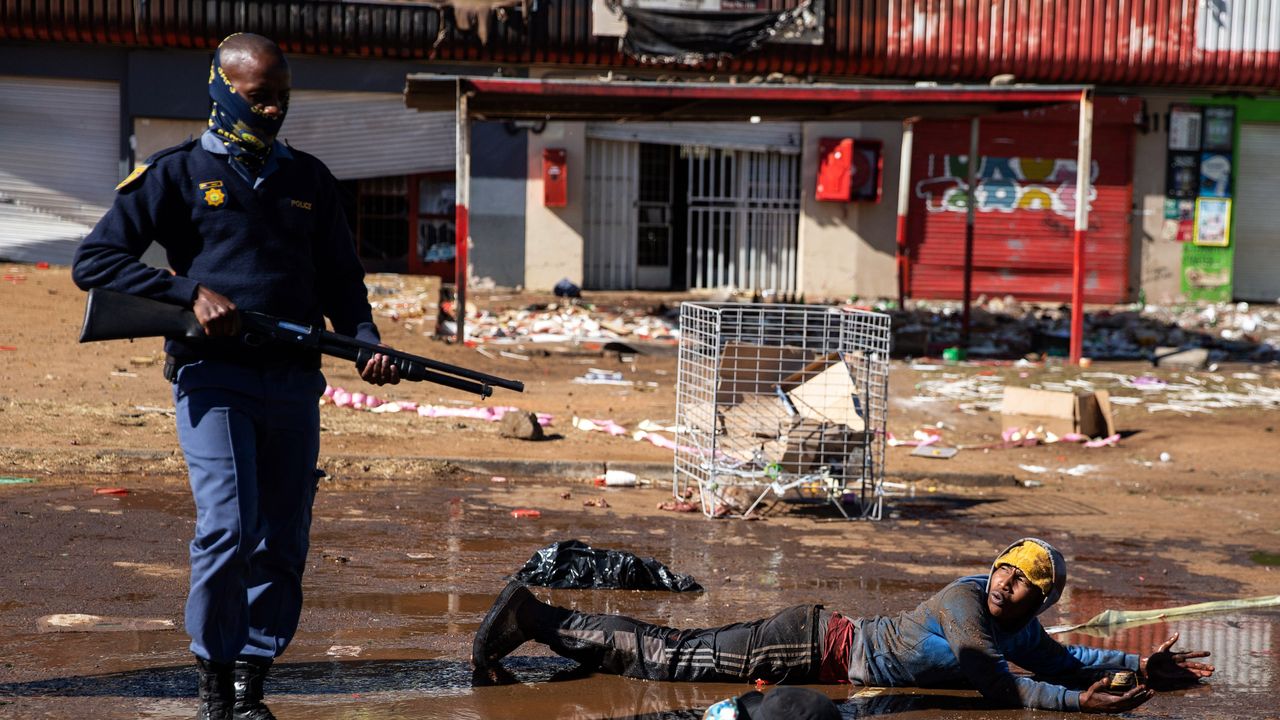
Cities across South Africa have been rocked by outbreaks of violence and looting following the imprisonment of former president Jacob Zuma.
Former leader Zuma was convicted of contempt of court last month when he failed to attend an inquiry into corruption during his presidency. He denies the charges against him, but later turned himself into police after receiving a 15-month prison sentence.
His arrest sparked unrest across the country, with supporters taking to the streets to steal “food, electric appliances, alcohol and clothing from retail centres”, Sky News says. “Vehicles have been burned, businesses vandalised and debris left strewn across roads.”
Subscribe to The Week
Escape your echo chamber. Get the facts behind the news, plus analysis from multiple perspectives.

Sign up for The Week's Free Newsletters
From our morning news briefing to a weekly Good News Newsletter, get the best of The Week delivered directly to your inbox.
From our morning news briefing to a weekly Good News Newsletter, get the best of The Week delivered directly to your inbox.
National explosion
Following sporadic outbreaks of unrest across multiple regions of the country, the violence ramped up after “crowds looting and setting alight shopping centres clashed with police” across several cities yesterday, the BBC reports.
Earlier this week, “ten people were killed in a stampede during looting at a shopping centre in Soweto”, while police said that they have so far “identified 12 people suspected of provoking the riots” and “a total of 1,234 people had been arrested”.
At least 72 people have been killed in the outbreak of civil unrest so far, with Major General Mathapelo Peters, the provincial spokesperson for Gauteng, one of South Africa’s nine provinces, attributing most of the deaths to stampedes during looting.
“Twenty-seven deaths are being investigated in KwaZulu-Natal province and 45 in Gauteng province”, Sky News reports, while police are also probing “deaths caused by explosions when people tried to break into cashpoints, and other fatalities caused by shootings”.
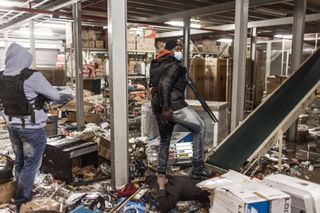
Government minister Khumbudzo Ntshavheni told the broadcaster that rioters “are pillaging distribution centres of retail companies... and demolishing malls”, adding the protests are driven by both “pure criminality” and “fundamental” socio-economic issues.
Pointing to South Africa’s ongoing battle against Covid-19, she said: “Lockdowns ensure people do not go to work, but most companies are not operating and most people are losing jobs and with that you increase unemployment.”
According to Cape Town-based News24, “the controversial former head of the State Security Agency’s (SSA) rogue special operations unit”, Thulani Dlomo has been identified by police as “a prime suspect being investigated for fomenting violent unrest” following the arrest of his former boss Zuma.
Three high-ranking officials told the broadcaster that Dlomo, who was sacked amid “a litany of corruption allegations”, has been identified as a “key person of interest in instigating the unrest that has rocked South Africa”. The ex-spy and ambassador to Japan is “known to be fiercely loyal to Zuma and is said to be at the centre of orchestrating pro-Zuma unrest”.
State Security Minister Ayanda Dlodlo told reporters that investigations are ongoing into the involvement of former SSA agents, however, she did not mention Dlomo by name.
“We did receive such information, and we are investigating it. Any information that comes to us we investigate. We do an analysis and we shift fact from fiction. That information we are working on”, she said. “Our responsibility is to gather and collate information and package it properly for a client which is law enforcement.”
According to Dlomo’s LinkedIn page, he served variously as director of security, chief director and deputy director general of the SSA between 2007 and 2017, prior to being appointed as South Africa’s ambassador to Japan, a role he held for two years.
A loyal ally of Zuma, one source told News24 that the outbreak of violence “has his fingers all over it”, adding: “The farm [the nickname for the headquarters of the SSA] has processed information that points to him being at the centre of all of this unrest.”
‘Worst violence since Apartheid’
President Cyril Ramaphosa has described the violence as “unprecedented in the 27 years since the end of the apartheid regime”, The Guardian reports, saying during a televsied briefing that he was speaking with “a heavy heart” and calling for respect for the law.
The emergence of “white militias” across the country – who have flooded in to “fill the lawless vacuum” since the outbreak of rioting – also “brings back uncomfortable memories of the past”, The Telegraph says.
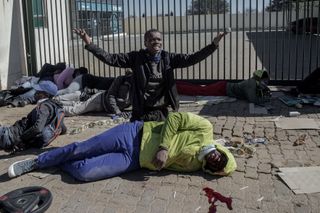
Images of from a “roadblock on the outskirts of Howick”, a town in KwaZulu-Natal Province, earlier this week showed a “group of about a dozen heavily armed white men who are part of an impromptu militia” standing around a black man receiving treatment to a bullet wound in his hand, the paper adds.
“A private security company put a call out on Tuesday evening asking for people who were prepared to stand guard or patrol”, a resident said. “I was really impressed that about 300 people turned up at a meeting point outside one of the few supermarkets that had escaped the mob.
“We were drilled and weapons and ammunition were checked then we were allotted tasks either on roadblocks or on patrol in the town and surrounding area.”
The deployment of 2,500 soldiers to support the South African police has failed to quell “rampant looting”, Sky News says, however, “arrests are being made in some areas in Johannesburg, including Vosloorus in the east of the city”.
The BBC also captured dramatic footage of a “baby being thrown from a building in Durban that was on fire after ground-floor shops were looted”. The infant was “caught by a crowd of people who rushed to help those trapped in the apartment block” before being reunited with its mother who “was too emotional to talk”.
Political catalyst
The economic fallout from the pandemic in South Africa has caused “low income levels and unemployment” that are now “seen as the ticking bombs that have exploded” into rioting, says senior producer for BBC Africa Farouk Chothia.
But “the catalyst was the arrest last week of Zuma” which led to his “supporters blockading major roads – the economic arteries of the nation – as they demanded the release of their political hero”.
Zuma’s trial has “laid bare deep divisions in the governing African National Congress”, Al Jazeera says, “as a party faction remains loyal to the former president and has been a potent source of opposition to his successor”, Cyril Ramaphosa.
South Africa’s High Court has dismissed an application by Zuma to have his arrest overturned, further exacerbating the spiral of violence around “a case that has been seen as a test of the rule of law in the post-apartheid nation”, the broadcaster adds.
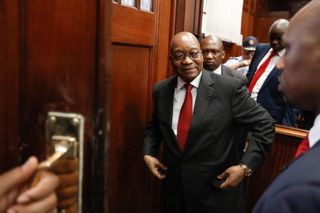
The formation of white militia groups has further heightened tensions, with The Telegraph’s senior foreign correspondent Roland Oliphant writing that “South Africa is facing its gravest domestic crisis since the end of apartheid”.
“Anger among the Zulu population and gangs of white vigilantes arming themselves for self-defence” have evoked the “memories of the bloody racial violence that preceded the first democratic election in 1994”, he adds. “Veteran South African journalists who reported on the end of apartheid have described a horrible feeling of deja-vu.”
Criticism has been levelled at law enforcement agencies who “failed to pre-empt protests and the consequent violence”, The Guardian says. Officials have denied that they were “missing in action”, claiming the chaos is not a result of an “intelligence failure”.
Zuma’s supporters have laid the blame at the door of Ramaphosa, who they argue “has failed to provide decisive leadership – either to calm anger over Zuma's imprisonment or to reassure South Africans that they will be safe”, says the BBC’s Chothia.
Government loyalists, however, have sought to pin responsibility on Zuma, The Telegraph’s Oliphant adds, suggesting that “the massive corruption” he is alleged to have overseen has “eroded trust in government” and “entrenched the inequality, unemployment and low living standards” that is underpinning the current unrest.
Any further evidence that ex-SSA head Dlomo is behind the violence will further add to allegations that Zuma is responsible for the deadly rioting.
But wherever the blame lies, the unrest “is bound to worsen the economic crisis, already hit by the pandemic, given the scale of destruction”, Chothia adds.
Sign up for Today's Best Articles in your inbox
A free daily email with the biggest news stories of the day – and the best features from TheWeek.com
-
 Classic car insurance: how best to protect your vintage vehicle
Classic car insurance: how best to protect your vintage vehicleThe Explainer Insuring your classic car may be cheaper than you think
By Marc Shoffman, The Week UK Published
-
 Celebrating 250 years of Jane Austen
Celebrating 250 years of Jane AustenThe Week Recommends From exhibitions to Regency balls, these are the best ways to commemorate the author
By Irenie Forshaw, The Week UK Published
-
 The pressure of South Korea's celebrity culture
The pressure of South Korea's celebrity cultureIn The Spotlight South Korean actress Kim Sae-ron was laid to rest on Wednesday after an apparent suicide
By Abby Wilson Published
-
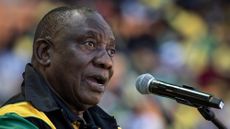 Why South Africa's land reform is so controversial
Why South Africa's land reform is so controversialThe Explainer Donald Trump has turned his ire on the South African government's land reform policies
By Richard Windsor, The Week UK Published
-
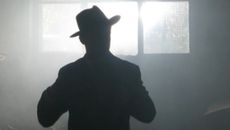 Who is the Hat Man? 'Shadow people' and sleep paralysis
Who is the Hat Man? 'Shadow people' and sleep paralysisIn Depth 'Sleep demons' have plagued our dreams throughout the centuries, but the explanation could be medical
By The Week Staff Published
-
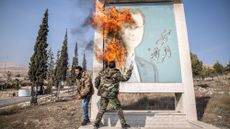 Why Assad fell so fast
Why Assad fell so fastThe Explainer The newly liberated Syria is in an incredibly precarious position, but it's too soon to succumb to defeatist gloom
By The Week UK Published
-
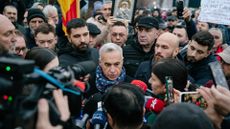 Romania's election rerun
Romania's election rerunThe Explainer Shock result of presidential election has been annulled following allegations of Russian interference
By Sorcha Bradley, The Week UK Published
-
 Russia's shadow war in Europe
Russia's shadow war in EuropeTalking Point Steering clear of open conflict, Moscow is slowly ratcheting up the pressure on Nato rivals to see what it can get away with.
By The Week UK Published
-
 Cutting cables: the war being waged under the sea
Cutting cables: the war being waged under the seaIn the Spotlight Two undersea cables were cut in the Baltic sea, sparking concern for the global network
By The Week UK Published
-
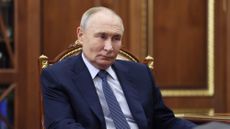 The nuclear threat: is Vladimir Putin bluffing?
The nuclear threat: is Vladimir Putin bluffing?Talking Point Kremlin's newest ballistic missile has some worried for Nato nations
By The Week UK Published
-
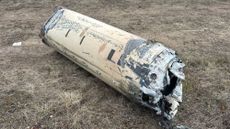 Russia vows retaliation for Ukrainian missile strikes
Russia vows retaliation for Ukrainian missile strikesSpeed Read Ukraine's forces have been using U.S.-supplied, long-range ATCMS missiles to hit Russia
By Arion McNicoll, The Week UK Published